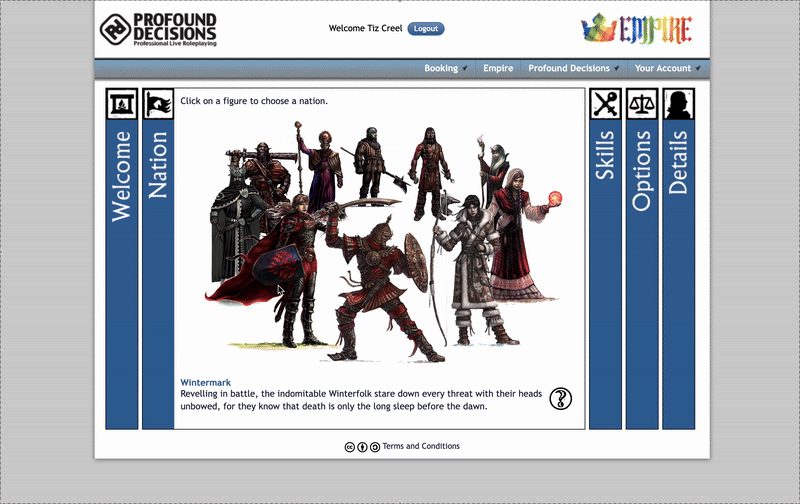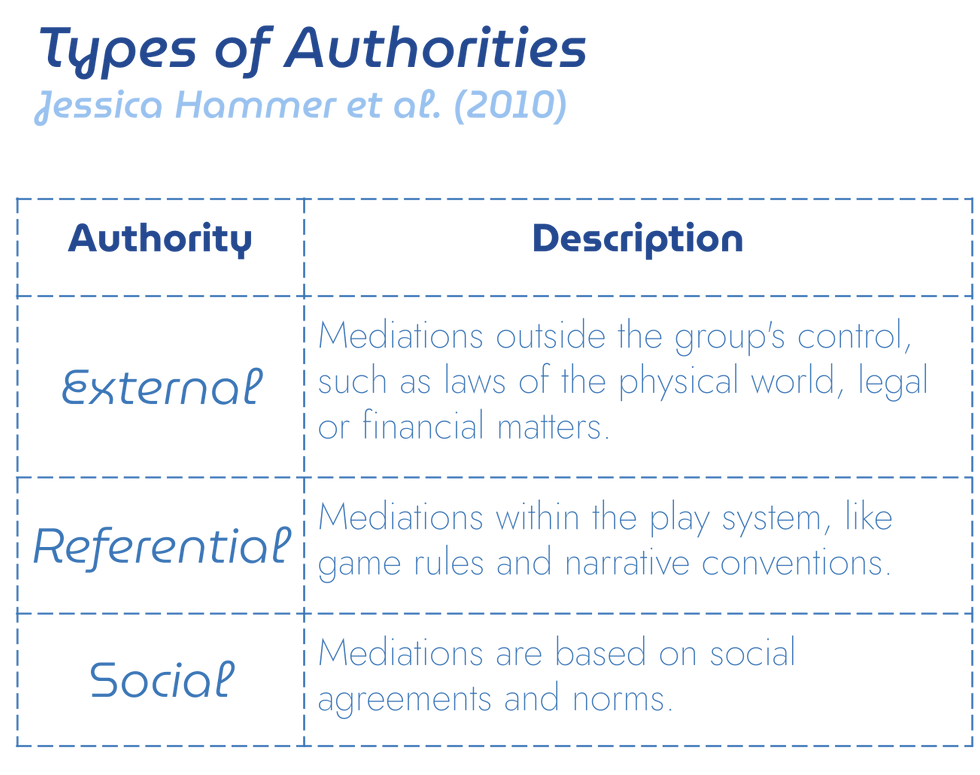Empire LRP and the civics of large-scale larps
- Tiz Creel
- Jun 12, 2025
- 5 min read
Updated: Nov 25, 2025
This a text overview of the presentation Playing the Part: Exploring the Civics of Empire LRP, for the symposium Evolution of Story III: Having a Larp 2025 at Southampton Solent University.
This article is part of an ongoing exploration on the art of playing with others, particularly focusing on larp to study the intricacies of social play at large scales.

Larp is a Social playform that depends on human connections. The social aspect of larp allows for significant levels of agency, while requiring, in turn, a meaningful amount of trust and endowment from all participants and organisers alike. A defining factor of presential playforms is the limited and controlled player counts.
Scaling presential play
Plato discusses the ideal population size for a polis, proposing the number 5040 through a somewhat complex reasoning involving divisibility and the practicalities of the state. Anthropologist Robin Dunbar proposed a cognitive limit to the number of stable social relationships a person can maintain. Suggesting a limit of around 150 meaningful relationships — that is, relationships of regular contact and cooperation. Dunbar understood relationships as ripples in a pond, layers whose quality, closeness, and strength decrease as the circles get bigger. In psychology, groupings between 12 and 15 are sometimes called the sympathy group—these are the typical size in most team sports, the number of members on a jury, or the number of Apostles. Small groups usually function without structure, relying instead on personal communication.


All social groups have a critical threshold at which informal mechanisms break down, and formal systems emerge to maintain, oversee and regulate social interaction. Metcalfe's Law illustrates that one-on-one connections grow quadratically as the group grows. In the context of larp, as in team sports or tabletop games, one more or fewer player can significantly impact the run of play. Ultimately, most presential playforms rely on small groups to create that type of connection and vulnerability that enables play to emerge.

Heavily mediated player interactions are designed to compensate for the fundamental lack of trust in large groups, where unmediated trust cannot be sustained. This is when trust is often placed on the system rather than the social bonds or the make-believe. However, large-scale LARPs follow different principles. Held in the UK, Empire LRP has hosted around 4,500 participants and crew, four times a year since 2013 (with some exceptions).
Preparation to play
Large-scale larps emerge through many years of world-building and participation. Most larps require some form of preparation, not only to understand the rules and culture, but it also has a decisive underlying role in building trust and reinforcing the make-believe. The preparation for a new player at Empire starts with creating a character. To do so, a new player first chooses one of ten nations, which defines what players can do and explore over the course of play. Empire functions like an ordinary human society that can be studied politically and economically. The system is modelled after a blend of feudal and bureaucratic forms, where the head of the Throne is elected by the Imperial Senate, which is composed of representatives of each territory.

The character creation process gives the player a place and a purpose within the imaginary world. After choosing a nation, the new player can choose skills and resources, a character archetype, and lineage, define goals and intentions, and craft a backstory, among other unique tasks. Then, players have to prepare costumes, props, and camping gear, bespoke to the character choices. By the time the player gets to the site, they are predisposed to connect and get immersed within a world they already know and understand, they see themselves reflected in the fictional world as they enter the shared make-believe. The preparation inherently introduces the player to the imaginary world while creating a personal connection to its fiction.
Images by Tom Garnett (E4 2024)
Authorities of play
In-character power is not tied to mechanical progression; it is earned by contributing to the Empire and building a legacy through in-game actions, role-play, connections, and strategic involvement. The paper Power and Control in Role-Playing Games, defines three primary forms of Authority:

The cooperative nature of Empire means that a significant part of the referential authority is enforced by player characters and referees composed solely of players and volunteers. In larps the community actively upholds the social contract, engaging in negotiations usually without the intervention of a higher authority. Social boundaries in role-playing games are fluid, and players have the responsibility to balance their expectations and motivations with those of the group.
Culture at play
To reach the higher roles of governance and influence, a player must undergo a character evolution process likely involving numerous events, building a reputation, alliances, and connections. Senator Cesare Sanguineo Rezia Di Tassato has served for 38 consecutive seasons- that is about 9.5 years. His tenure is marked by significant contributions to the city's infrastructure and cultural landscape, including museums, ministries, and trade institutions. Ultimately, the extent of intensity experienced in an larp depends significantly on the length of time invested.

Empire is a living organism that evolves, changes and grows on past events. Empire's culture endures partly because experienced and veteran players represent the majority of participants at any event. Experienced players maintain the culture and community norms, teaching them directly or indirectly to new players. Players likely act according to the norms because they trust others will do the same. A key aspect of trust is accountability, which occurs when players interact repeatedly over time. Players are more likely to engage in antisocial behaviour (in and out of character) if the social encounter is a one-time event rather than a long-term commitment.
Barriers to play
Every new player has a different experience, and not all are positive. The player base represents people from different customs, ages, and professions... sometimes causing conflicts, disputes, alienation, and breaches of the make-believe. Nonetheless, players share enough similarities for Empire to survive and grow for over a decade. Barriers to entry can equally be an aspect of social cohesion, as it is and a form of social exclusion. Things like the physical location, costs, time, language, or background, among other impediments, profile what kind of players can participate in Empire. Like any ordinary subculture, the larp community faces a conundrum between becoming more accessible and inclusive and conserving culture and social cohesion.

The future might be uncertain, but Empire will live on. Recently, Profound Decisions (the organisation behind Empire) purchased a permanent site in the English Midlands, marking a pivotal point for larps and community organisations. The purchase was made possible by raising more than a million pounds with 2,400 shares bought by community members. The shareholders own 49.9% of Unknown Worlds, and Profound Decisions owns 50.1%. Organisers, crew, and players are now looking at a blank space to finally build Empire with permanent structures, vegetation, and basic infrastructure. The main goal of the unknown world is to host the Empire, and the long-term ambition is to create the National Live Role Playing Centre, which will host different larps, events, and conventions. Empire reminds us that enduring cultures are not built by systems alone but by the strength of human connection and the endowment to make-believe. And maybe by studying how we play together, we can learn something about how we live together, too.
Evolution of Story III: Having a Larp symposium took place on 17 June 2025 at Southampton Solent University, Southampton, UK, and online.




















Comments